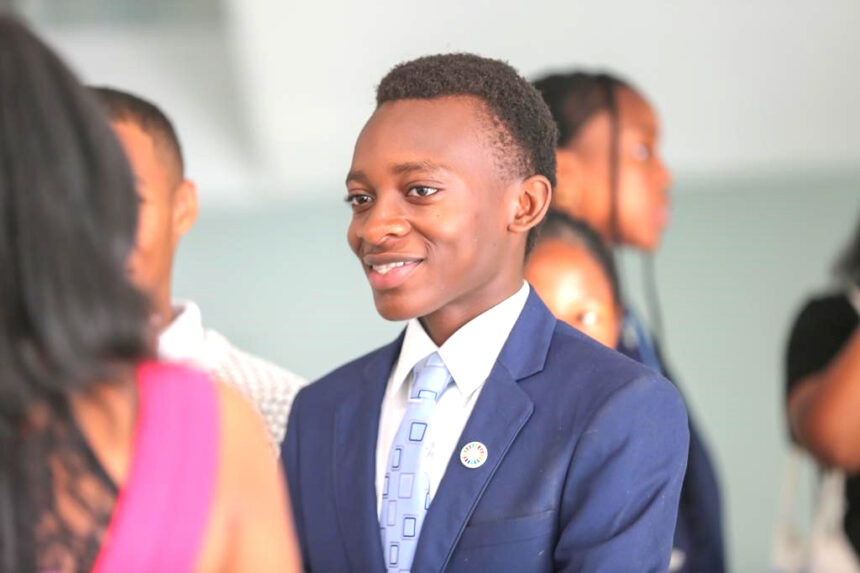Symon Itenge blindly entered the Model United Nations (MUN), but beyond training and information, he had hoped participating would provide a stepping stone to something larger – a glimpse into the world of international relations, or on a path towards a career in diplomacy.
The Delta Secondary School pupil stands out not just because of his academic pursuits, but also for his curiosity and passion for learning beyond the classroom.
“I went into it blindly, just hoping there would be enough guidance to help me figure it all out. My initial uncertainty quickly gave way to excitement as I realised the potential that MUN offered,” he said.
MUN is an educational model where students roleplay delegates to the United Nations, and simulate UN committees. Through negotiation, discussion, and debates, they acquire knowledge on issues such as diplomacy, international relations and current world issues.
The 12th Model United Nations Namibia (MUNNAM) conference started yesterday, and ends today at the UN House in Windhoek. The event brought together high school pupils from across Namibia, offering them an opportunity to engage in diplomatic discussions, and simulate the processes of the United Nations.
Co-hosted by the UN System in Namibia, the Ministry of Education, and the British High Commission in Namibia, the annual conference provides young people with a unique platform to delve into pressing global issues, sharpen critical thinking skills, and gain first-hand insights into international diplomacy.
This year’s theme: “Advancing Gender Equality and Women’s Empowerment: Building Sustainable Societies Globally,” highlights the critical role of gender equality in fostering just, equitable and sustainable societies.
Although the experience was different from his lofty expectations, Itenge found himself deeply engaged. For him, the opportunity to connect with others was just as important as the formal sessions, and he believes fostering stronger bonds between participants would enhance the overall experience.
A standout moment for Itenge was meeting new people during the training day because, through MUN, he has developed key skills that will serve him in future. This connection with peers left a lasting impression on him, one he carries forward as he prepares for the upcoming MUN conference.
“I have learnt to use my voice, to speak to a large crowd, and to negotiate by understanding other people’s perspectives. MUN has made me more confident, more social and better at interacting with people from different backgrounds,” he said.
Public speaking, research, teamwork and negotiation are now part of his growing repertoire, along with a deepened appreciation for diversity.
Lumba Muituti, a Grade 8 pupil from Eldorado Secondary School, is ready for her first MUN conference. Her journey has not been without setbacks, including nearly missing the preparatory training session because she got lost, and recently discovered that her fellow delegate and partner had withdrawn from the conference.
“There have been many stumbling blocks from the start, but I remain determined to participate in the conference. I was encouraged by my teacher, Ms Dedig, who believes in my potential. I decided to take on this opportunity. The training session at the UN House was my first real introduction to what Model UN is all about, and what delegates representing different countries are expected to do,” she said.
She has learnt a lot about the country she will represent – Lesotho – and the various barriers women face, such as high rates of gender-based violence, limited access to education and economic inequalities. To combat gender-based violence, she suggests raising public awareness and creating training programmes, specifically for women and girls.
Through her research, Muituti found that indigenous women are particularly affected by environmental issues in Lesotho. They often bear the brunt of climate change impacts, facing poverty and limited access to education and healthcare.
Her findings highlighted their crucial role as keepers of culture and natural resources, demonstrating that women can make valuable contributions within their communities.
“I didn’t realise how important gender equality and women’s empowerment were until I started MUN programme. It hasn’t been an easy start to my journey, but I know that attending this conference will be worth it for the new friends, skills and knowledge I will learn,” she said.


